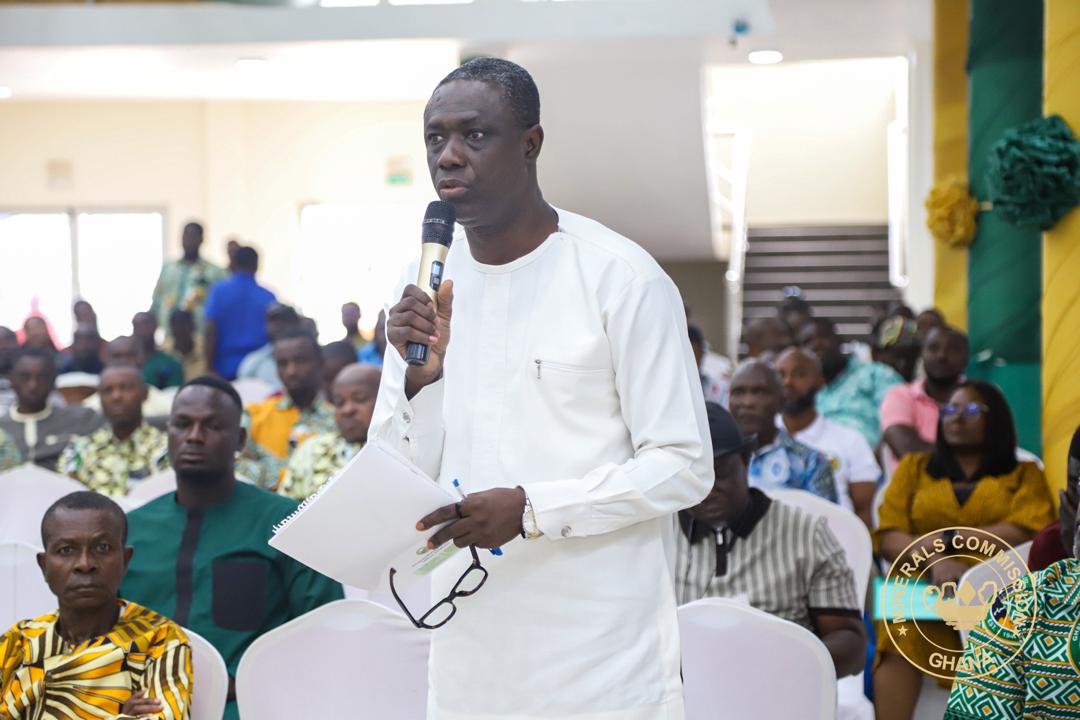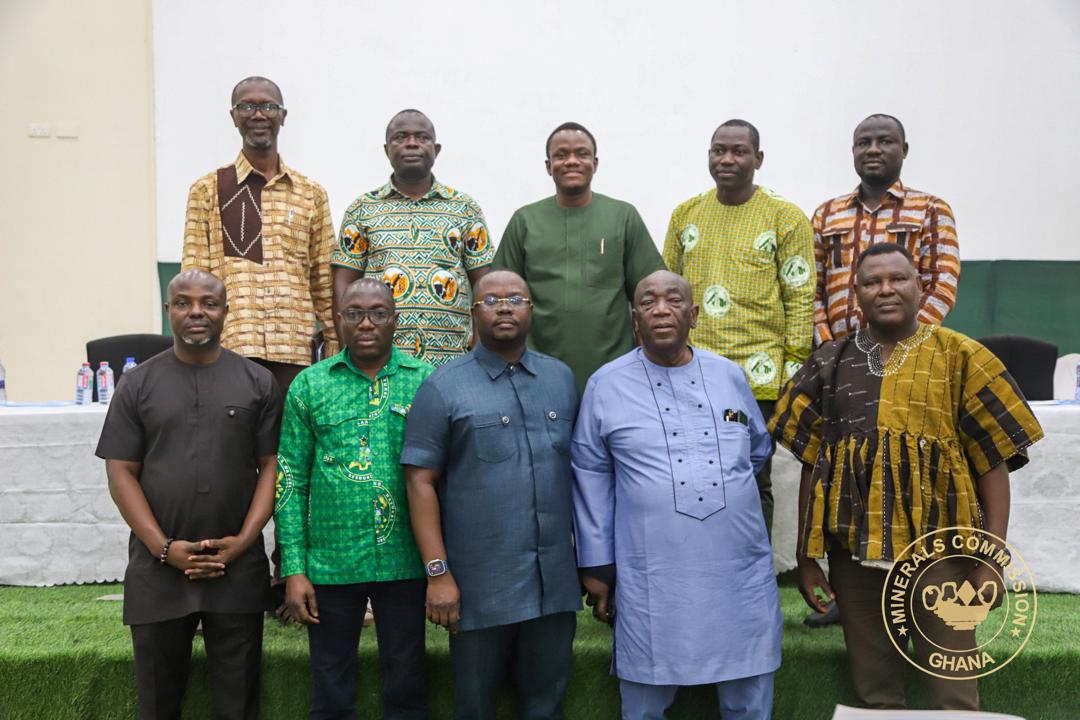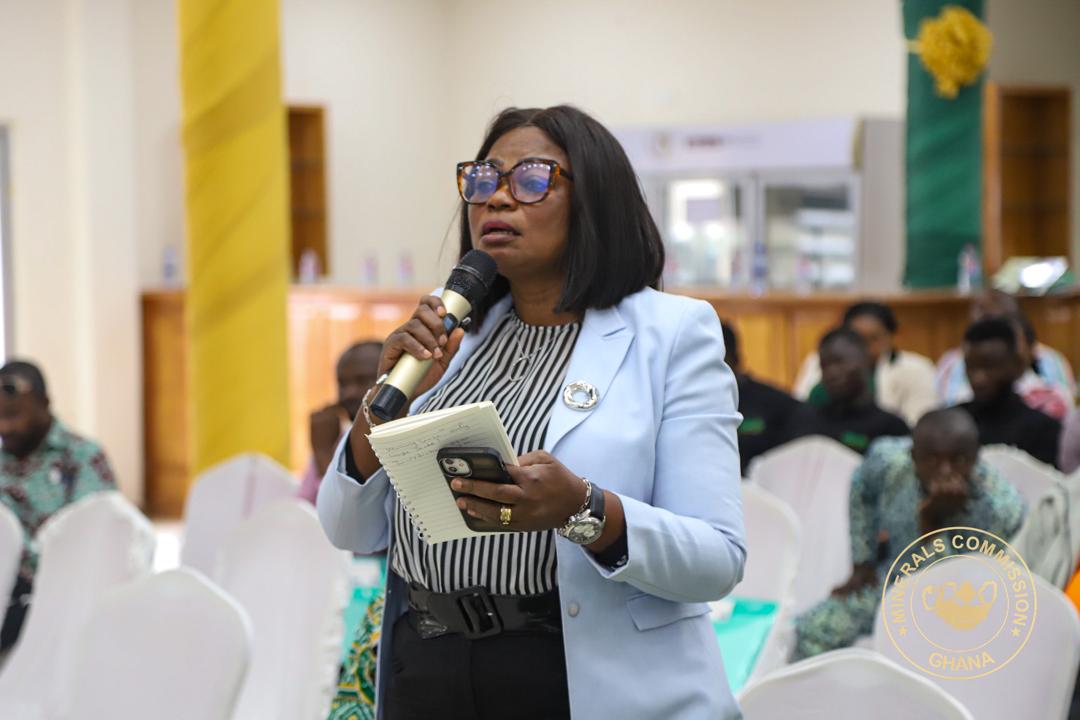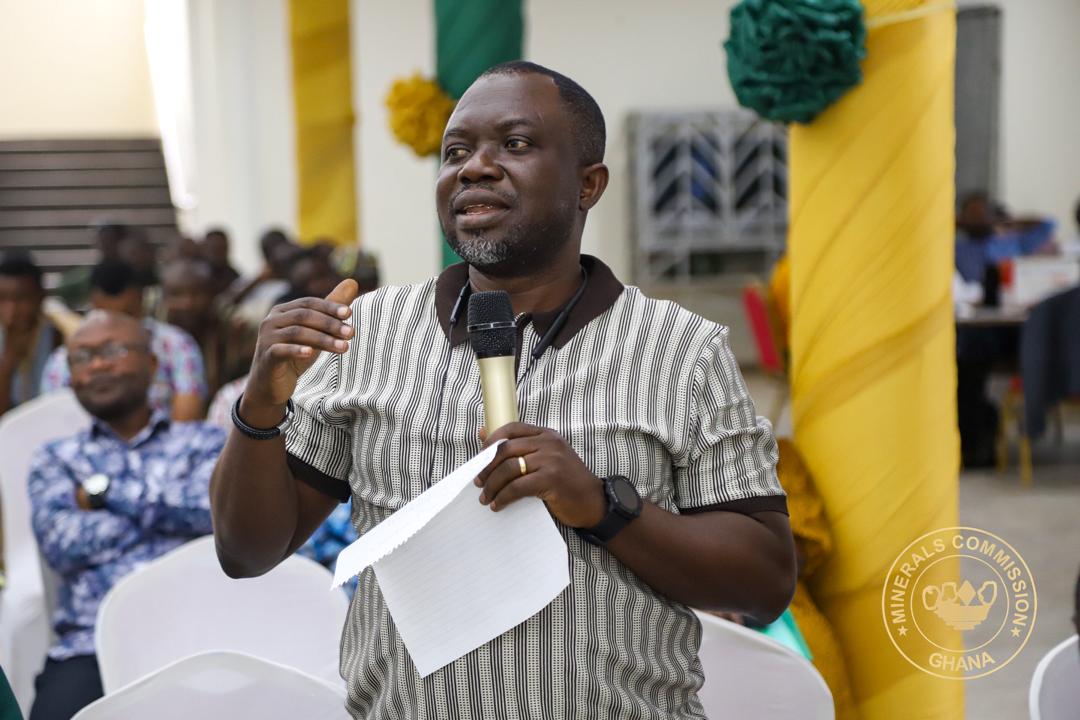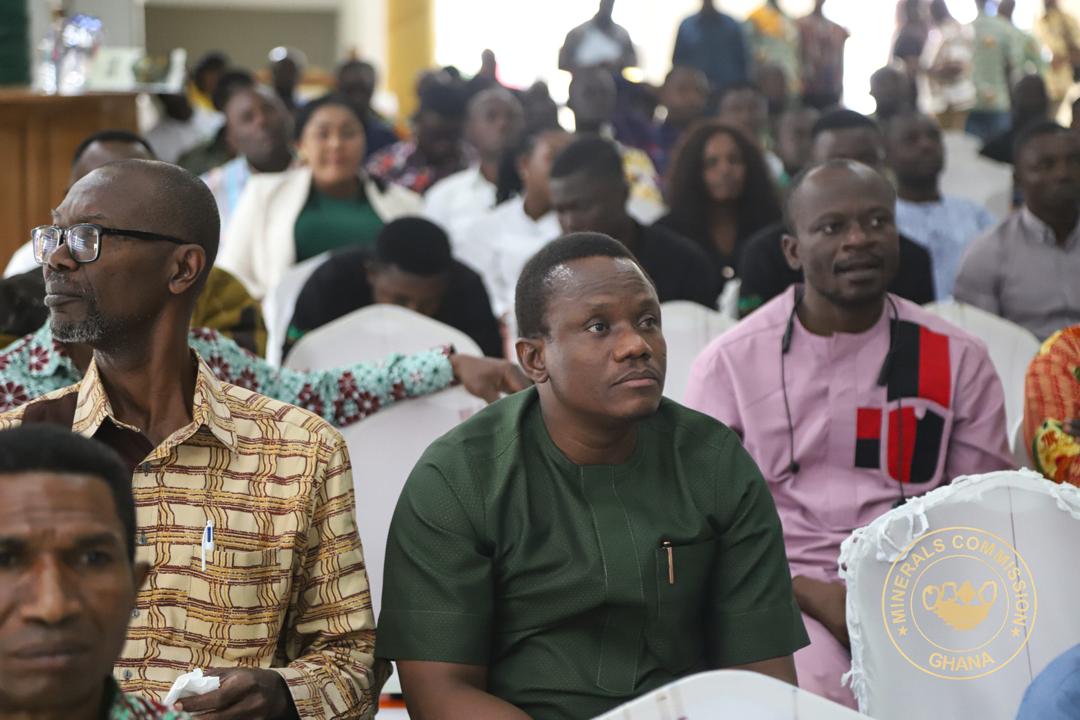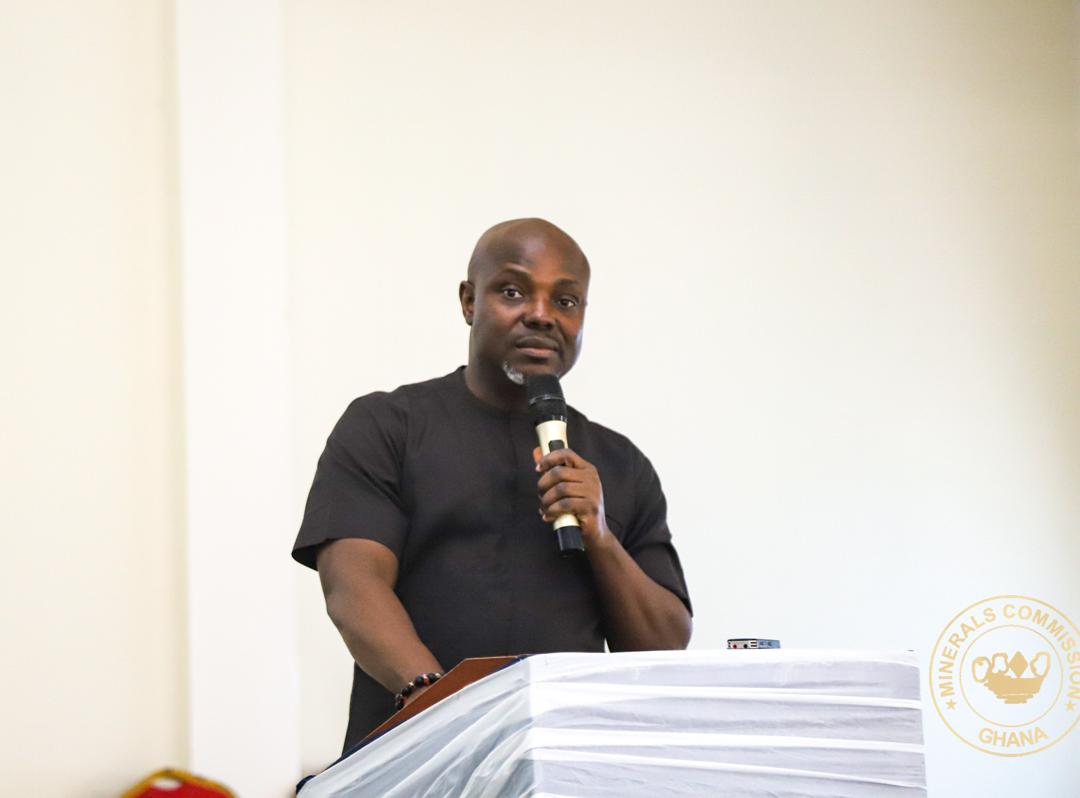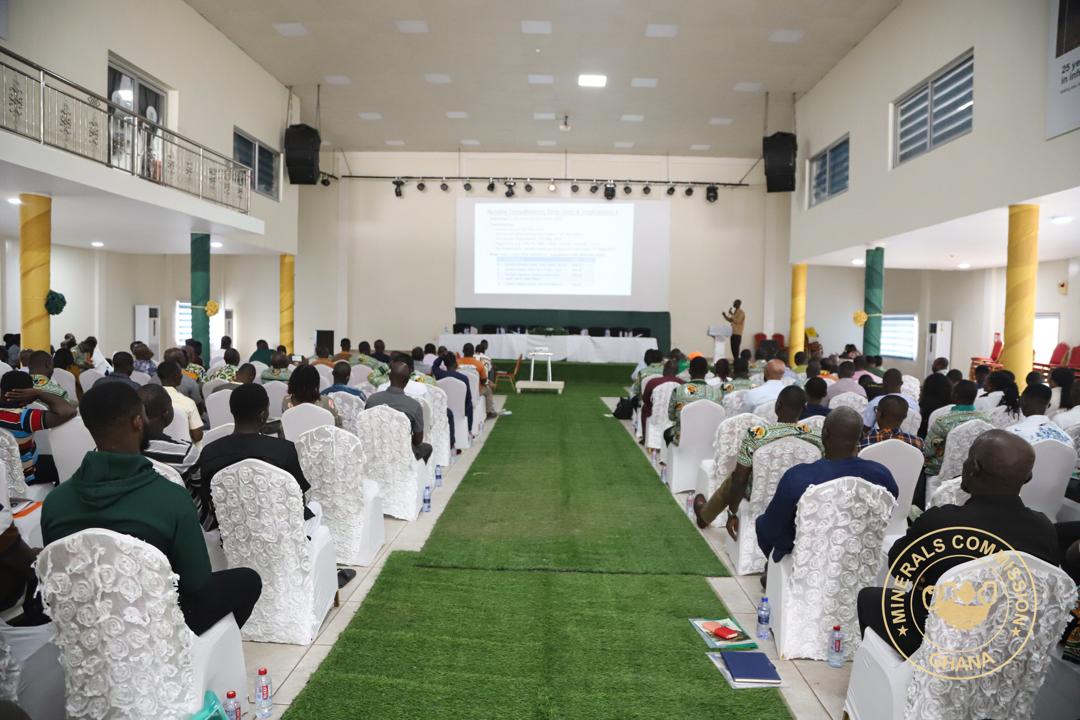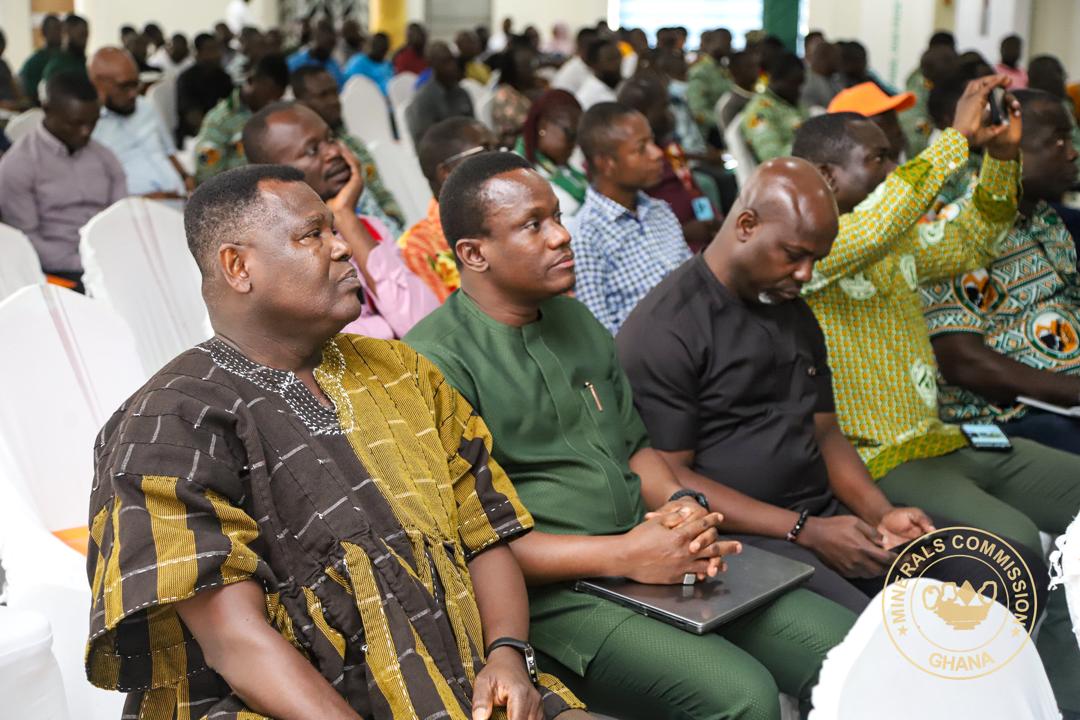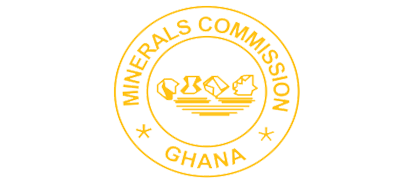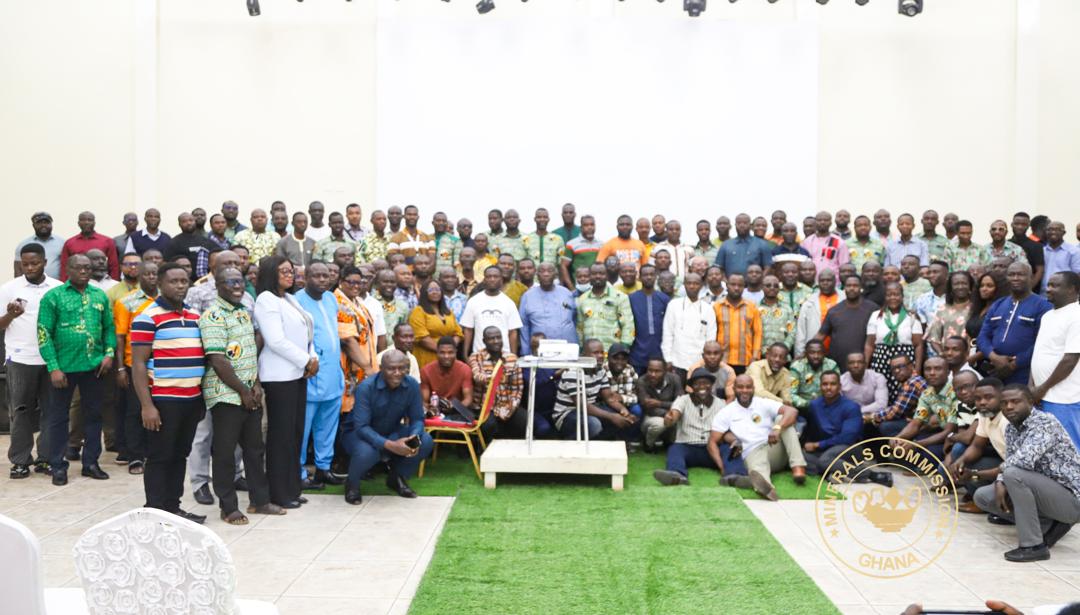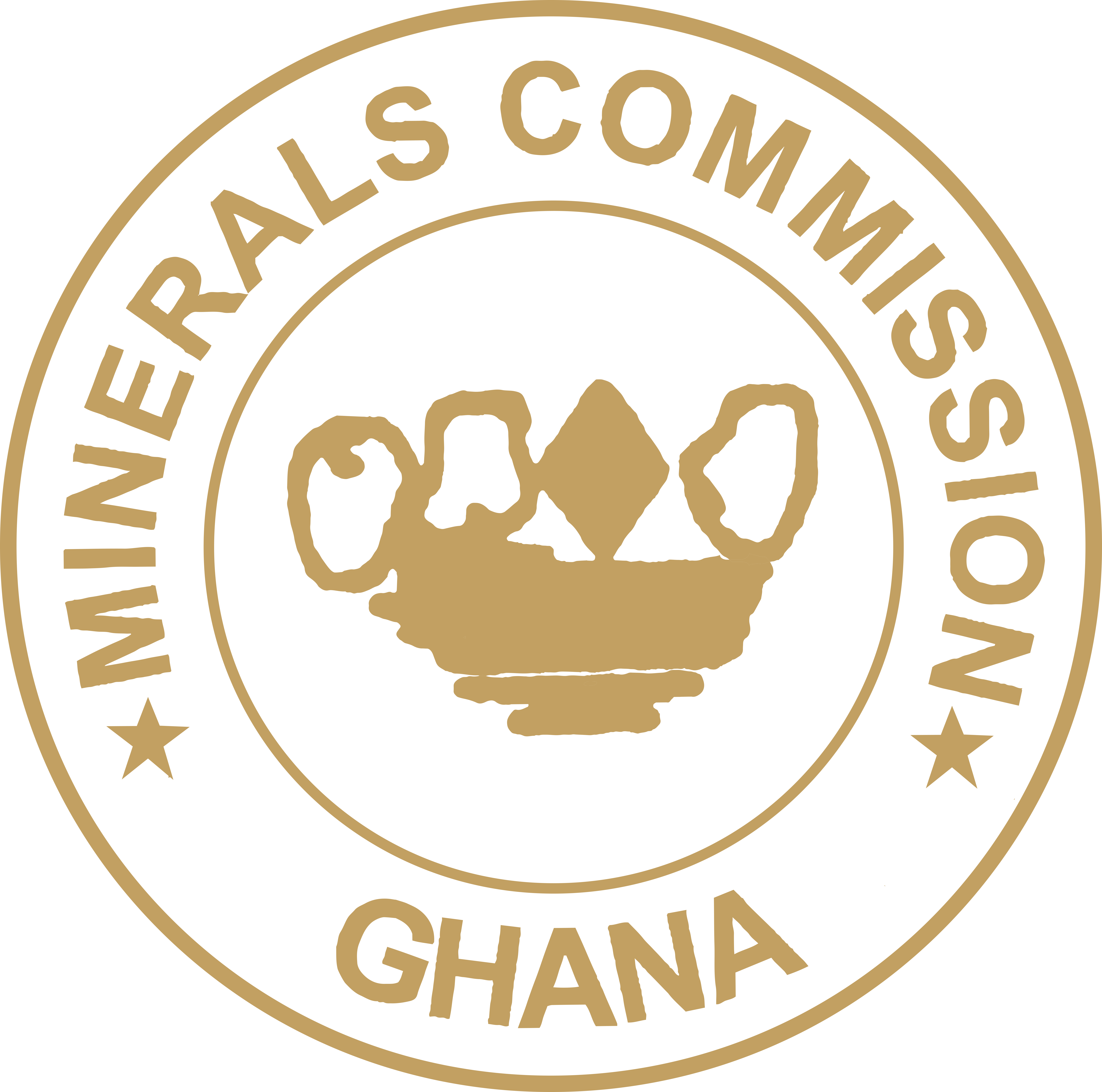Ghana Mine Workers Union Commends Minerals Commission for Wider Consultation on Policy And Legal Review.
On August 14, 2025, the Minerals and Mining Policy Review Committee of the Minerals Commission held a consultation session with members of the Ghana Mine Workers’ Union (GMWU) at the Clubhouse of Tarkwa Goldfields in the Western Region. The Deputy General Secretary of the Union, Mr Jerry Andoh, welcomed and introduced the delegation from Minerals Commission to the members.
During his presentation, Mr. Benjamin Aryee, Chairman of the Review Committee underscored government’s pivotal role in policy formulation, providing a comprehensive backdrop to the policy document. This encompassed a historical trajectory of the policy and legislation, dating back to the colonial era, through the seminal consolidation of mineral-related laws under Minerals and Mining Law, 1986 (P.N.D.C.L. 153), and subsequent drafting efforts in the early 1990s, culminating in the adoption of the inaugural edition of the Mining Policy in 2014.
Emphasizing the proposed revisions, Mr. Aryee delineated the restructuring and key rationales underpinning the proposed policy. Notably, a statement explicitly acknowledging the high-risk nature of mineral exploration and mining has been introduced, underscoring the imperative for a robust and equitable regulatory framework that aligns with international best practices and state-of-the-art standards.
Furthermore, the proposed revision updated the legal and institutional framework, explicitly outlining the Minerals Commission’s pivotal role in l managing and regulating the sector. The revisions also considered provisions guaranteeing security of tenure for mineral right holders, distinctly separating same from enforceable obligations.
Highlighting Ghana’s commitment to addressing climate change and energy transition requirements, Mr. Aryee stressed the need to achieve these goals while fostering a development paradigm that prioritizes the following key areas.
- Improving and enforcing mining sector work-related health and safety regulations and standards
- Mainstreaming and formalizing artisanal and small-scale mining (ASM) activities to enhance safety and prevent hazardous occurrences.
- Foster Collaboration among key stakeholders to educate miners and communities on health and safety issues related to the use of hazardous chemicals
by Adopting mercury-free technologies.
Mr. Josef Iroko, Manager with the Legal Department, highlighted the key proposed amendments to the Minerals and Mining Act, 2006 (Act 703). He emphasized the importance of integrating gender-sensitive approach and ensuring that gender considerations are mainstreamed within the mining industry. Furthermore, citing an important input during similar consultation with GNASSM in Tamale, the proposed amendment aims to promote the inclusion of the physical challenged persons in the mining sector to foster more inclusive industry.
Mr. Iroko noted that Section 40 of the current law regulates the mechanics of mineral rights, including the use of mining leases as collateral and for joint ventures. However, the law lacks a comprehensive definition of “dealings.” To address this gap, the proposed amendment seeks to define dealings as encompassing all permissible transactions under the Minerals and Mining Law, and to provide clarity and certainty.
Additionally, the amendment aims to update the law to reflect the current status of the Ghana Geological Survey Authority (GSSA), which has transitioned from a department to a fully-fledged Authority. This change will ensure that the law accurately reflects the current institutional framework of GGSA
The proposed amendment will mandates Minerals Commission to systematically andproactively disclose various information regarding mineral rights, including agreements, licenses, payments, revenues, and production volumes. This move aligns with Ghana’s commitment to the Extractive Industries Transparency Initiative (EITI) and will enhance accountability and transparency in the governance of the mining sector. While ensuring the protection of confidential and proprietary information, the commission will adher to international best practices, drawing from the experiences of countries such as Guinea, Liberia, and Sierra Leone.
Lastly, the amendment aims to standardize the terminology used in Sections 33, 35, and 44 of the law, which relate to extensions and renewals of licenses. By adopting a consistent approach, seeking to eliminate any possible ambiguity and ensure clarity in the application of the law.
Mr. Nelson Ahedor Director in charge of Small Scale Mining and Industrial Minerals emphasized the need to review the Mining Policy, followed by an examination of potential amendments to the Minerals and Mining Act.
He highlighted the imperative of fostering dialogue with the Ghana Mine Workers’ Union with the express purpose of leveraging their collective insight and perspectives.
He emphasized that consultation with the Union is paramount in crafting policies and laws that are deeply rooted in the realities of the indigenes.
Also highlighted strongly by the team was policy framework for sustainable mining in Ghana, which aims to balance the interests of individual investors with those of the nation. The framework includes:
- Regulatory requirements: Mining companies are required to adhere to environmental regulations, health and safety standards, and social responsibility guidelines.
- Monitoring and enforcement: Government agencies, such as the Minerals Commission and the Environmental Protection Agency, are responsible for monitoring and enforcing compliance with regulations.
- Digitalization: The mining sector is increasingly adopting digital technologies, such as data analytics, artificial intelligence, and blockchain, to improve efficiency, transparency, and accountability.
Identifying Mining Companies
As a citizen, you can identify the type of mining company by looking out for the following:
- Size of operations: Large-scale mining operations often cover vast areas, while small-scale operations are typically smaller.
- Equipment and technology used: Large-scale mining companies employ advanced technology and equipment, while small-scale operations often use simpler, more labor-intensive methods.
- Licensing and permits: Mining companies are required to display their licenses and permits, which can indicate the type of operation and the minerals being extracted.
By understanding these differentiating characteristics and the policy framework for sustainable mining, citizens can better engage with mining companies and hold them accountable for their operations.
END.
